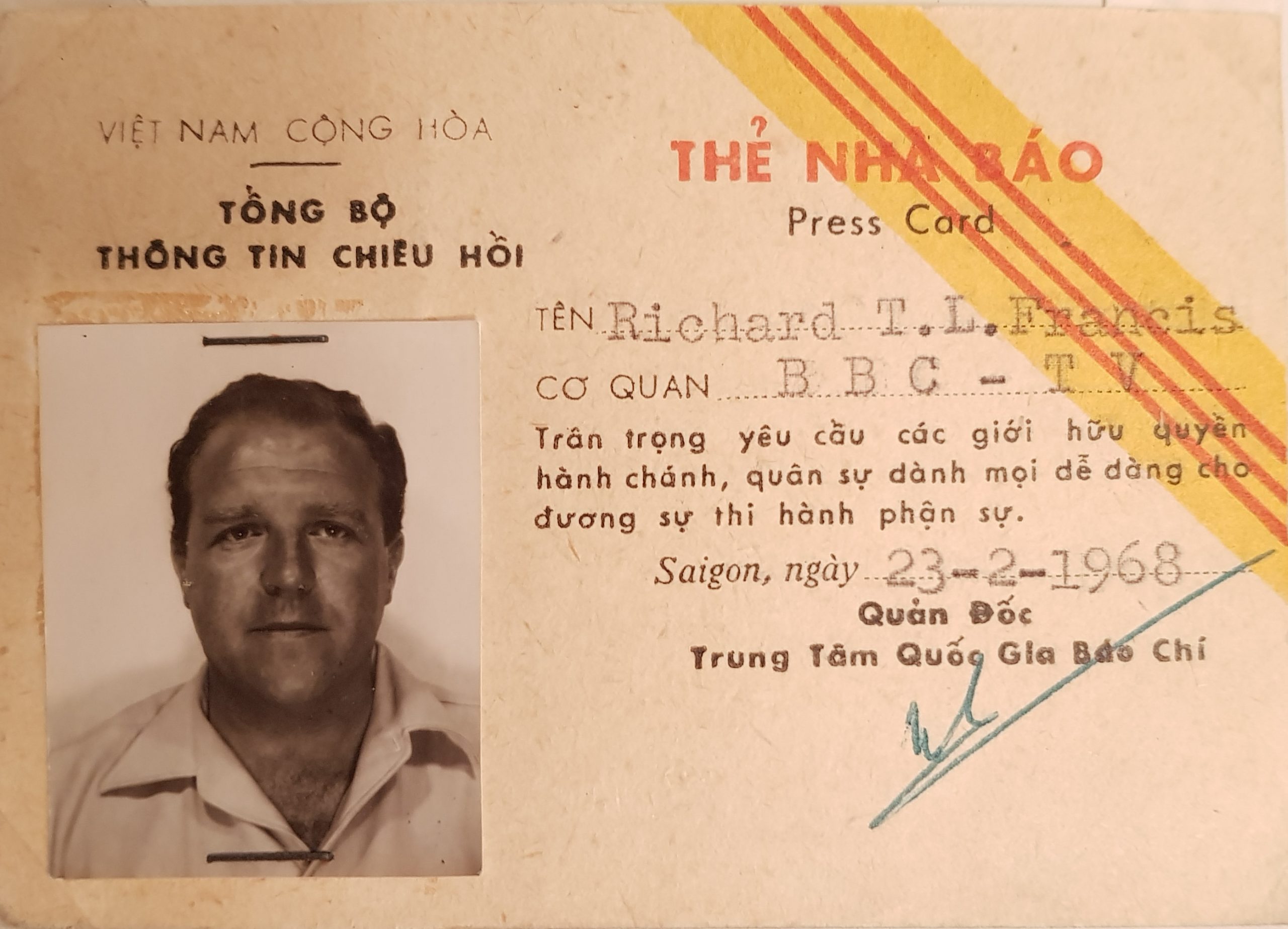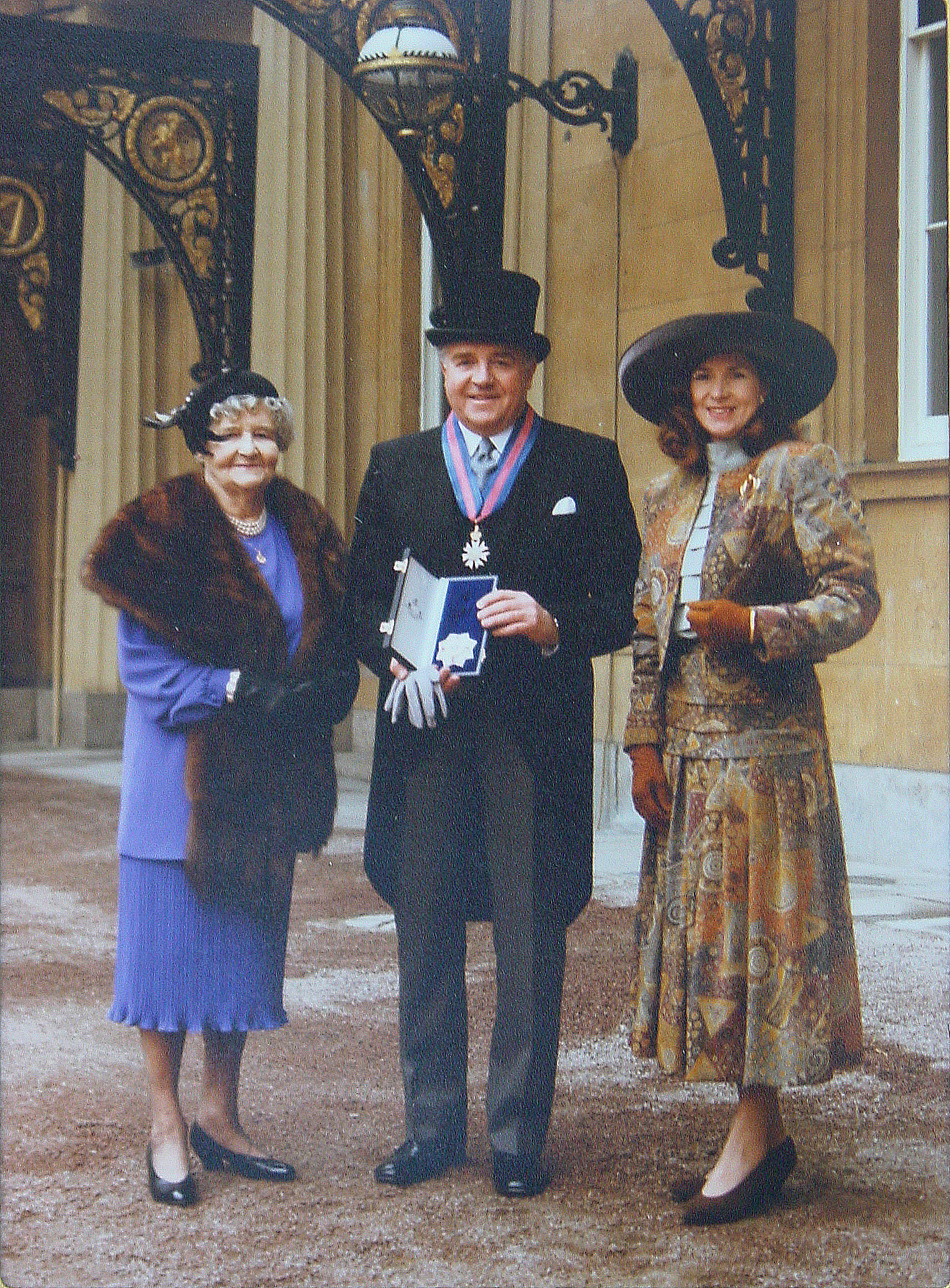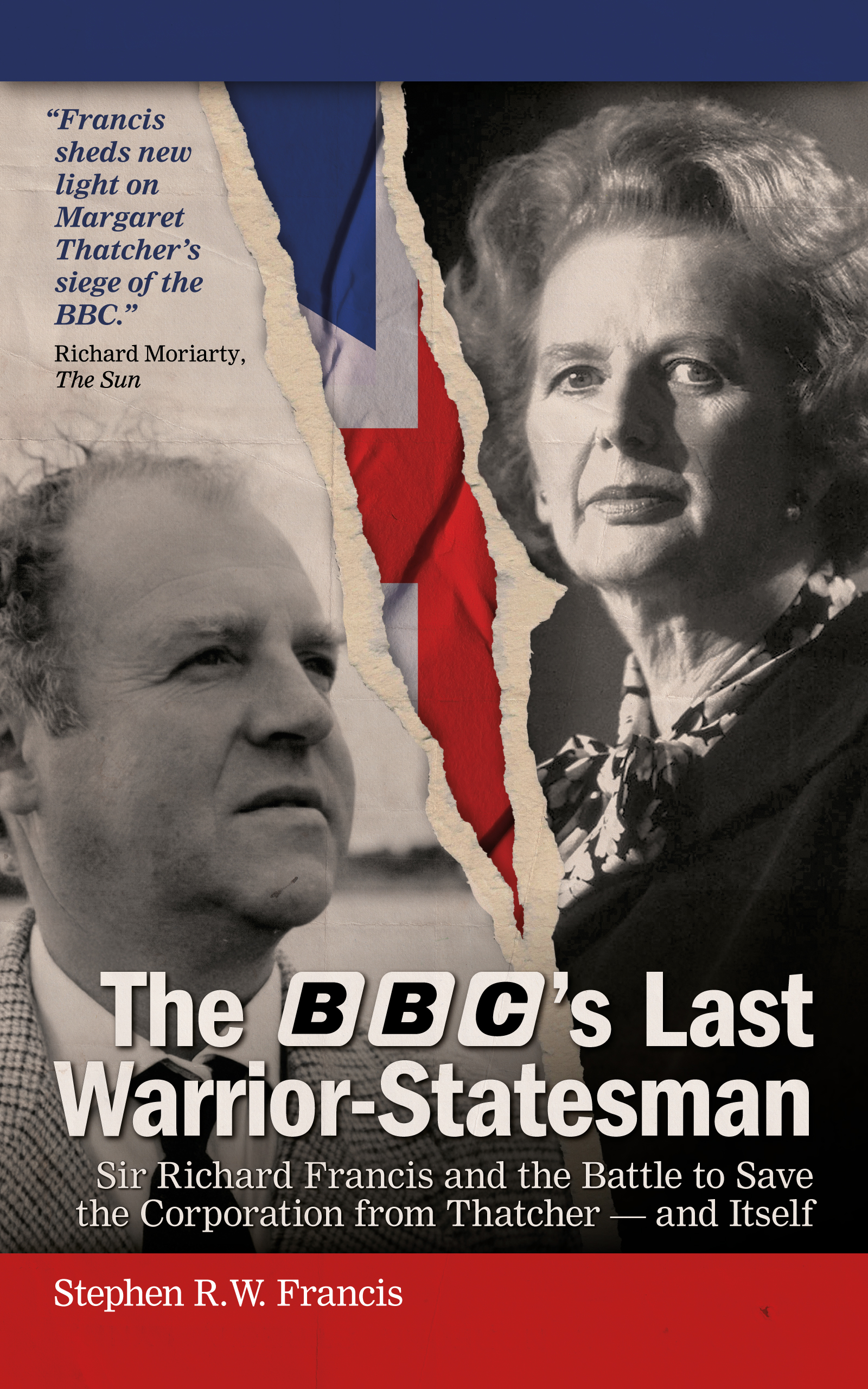The BBC’s Last Warrior-Statesman
The BBC’s Last Warrior-Statesman, The new book by Stephen R.W. Francis, is out now in paperback and eBook formats.
Sir Richard 'dick' francis
My father, Richard ‘Dick’ Francis, worked at the BBC during its golden years, from 1958 to 1986, a period when the corporation was a global leader in news and current affairs.

Back then, the BBC was powered by young, entrepreneurial producers, journalists, and cameramen who helped it achieve unprecedented influence, more so than even some governments. Dad was at the heart of this, contributing significantly to the BBC’s leadership on the world stage. By 1986, the tides had shifted. External pressures from a growing number of competitors and a hostile government led by Margaret Thatcher had started to erode the BBC’s influence. Internally, the organization was also beginning to unravel, a decline that would play a significant role in Dad’s departure, a story explored in detail in this book.
My father died before the internet age, meaning much of his life and work isn’t readily searchable or easily accessible. For over 30 years, I have lived with the knowledge that he was a successful man, yet I never truly knew him. In February 2023, at 62—older than my father was when he passed—I retired from my full-time career. This marked a turning point for me, an opportunity to finally confront the feeling that I had something to live up to, something I couldn’t quite define because I never fully understood the man who had cast such a long shadow over my life. Dad was larger than life in many ways. Despite being absent for much of my childhood, whenever he was with me, I had 100% of his attention. I always felt loved, and I considered myself fortunate in that regard. He taught my brother Mark and me how to sail, but not in the safest of ways—Dad was a risk-taker by nature. Whether it was sailing, his personal life, or his business ventures, he was only truly happy when he was pushing the boundaries and taking calculated risks. He believed in breaking eggs to make an omelette, and he was always ready to accept the consequences, whether he succeeded or not.
He died of a heart attack in 1992. I never got the chance to know him as an adult, to understand his inner world—his fears, hopes, or challenges. This biography has been my way of finally getting to know him in the way I never could when he was alive, and to understand why others held him in such high regard.
The BBC’s Last Warrior-Statesman
In November 1992, just months after his death, a memorial service was held for him at St. Paul’s Cathedral. The turnout was staggering, with dignitaries, government officials, and diplomats from all over the world attending to pay their respects. The eulogies painted a picture of an extraordinary man—my father—but as I sat there, I realised that I didn’t really know him. That thought stayed with me for 30 years, as I navigated my own career and life.
Obituaries soon followed in the national newspapers. The late author and Baroness PD James wrote a piece for The Independent, while The Daily Telegraph and others devoted reams of column inches to his achievements. They each praised his work at the BBC and his five-year stint as Director General of the British Council.
He was internet-invisible for 31 years until my initial research stirred up interest and his Wikipedia Page appeared in 2023.
In May 2019, I decided it was time to confront that lack of understanding. I visited Penny, my father’s second wife, and asked her what had happened to all of Dad’s belongings. He had been a notorious hoarder, and I wondered if any of his personal effects were still around. Penny revealed that, shortly after his death, she had packed everything up and stored it in a lock-up garage. It had remained untouched for nearly three decades.
Penny wasn’t optimistic about finding the key, but against all odds, she did. Together, we opened the garage and, to my surprise, found a treasure trove of family history, including my father’s work and personal items. Inside were disorganised boxes containing everything from golf bags and children’s toys to work papers, newspaper clippings, photographs, and even tapes. This wasn’t just a messy heap of memories—it was a rich archive of my father’s life and career, waiting to be explored.
Over the following months, I spent a considerable amount of time sifting through the contents of that garage. There were many internal BBC memos shedding light on the highlights and struggles of his career as well as cassette tapes of BBC management meetings bringing new perspectives to famous events of that time and of its personalities.
One of the most remarkable discoveries was a collection of postcards my father had sent from all over the world during his time at the BBC and later with the British Council. The postcards and letters had been kept by my grandmother, Joy, and were passed down to me after she died in 1999. Though I had only read a few of them at the time, the collection has since helped me piece together a history of my father’s travels and experiences.
The postcards begin in May 1967, just after Dad resigned from the BBC as part of a bid to join a team vying for the Yorkshire TV franchise. That first postcard was sent from Paris, and, over the years, more followed, documenting his travels across Africa, Europe, the US, and beyond. The collection provides a glimpse into his life during key moments in history, such as his coverage of the Tet Offensive in Vietnam and his leadership roles at the BBC and, later, the British Council.
The postcards continued up until two weeks before his death, with the last one also sent from Paris in June 1992. In total, I uncovered 450 postcards from 110 different countries, including virtually every continent and encompassing more than half of all the countries in the world. These cards, written almost weekly to my grandmother during his travels, have been perfectly preserved. Along with these, the garage contained newspaper cuttings, memorabilia, and tape recordings, all of which have helped me build a fuller picture of my father’s extraordinary life.
This archive, combined with research from autobiographies, BBC histories, The BBC archives and interviews with my father’s contemporaries, has given me the material I needed to write the biography he deserves. One of his oldest colleagues and friends, Sir Paul Fox, who passed away in 2024, once said, “Dick was one of the great men in television, a hero of his time. He worked very hard, perhaps too hard, and it eventually caught up with him. But he was an exceptional man, someone I admired and liked greatly.”
This book, The BBC versus Thatcher, is my way of finally getting to know that man and sharing his remarkable life and legacy with the world.


Written by his eldest son, The BBC’s Last Warrior-Statesman is the first official biography of Sir Richard Francis, charting his rise from producing flagship current affairs programme Panorama in the revolutionary Sixties, to BBC Controller for Northern Ireland during The Troubles of the Seventies, and BBC’s Director for News and Current Affairs in the polarised Eighties.
With unique access to documents hidden from public view for 40 years, it uncovers the colourful personalities and heated conflicts within a BBC boardroom under siege, and underlines Francis’ key position as an unshakable and innovative champion of public service broadcasting when the organisation needed it most.
– “An engrossing account of the BBC’s inner workings during its most turbulent era.” Chris Riches, Daily Express
– “Francis sheds new light on Margaret Thatcher’s siege of the BBC.” Richard Moriarty, The Sun

